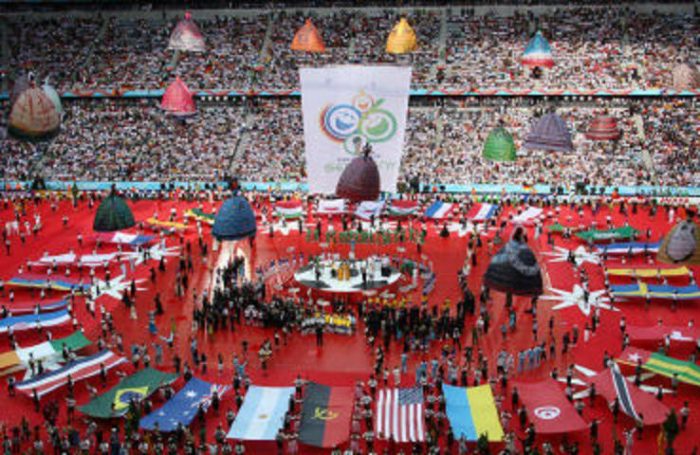Published in Nikkei Asian Review 23/6/2014
Football has become a global language. The FIFA World Cup Final, to be held on July 13th, is likely to attract an audience of over one billion, according to accountancy firm Deloitte. The viewers will range from Russian oligarchs in London penthouses to impoverished crowds gazing at open-air screens in slums and shanty towns. For the ninety minutes of the match they will share the same excitements and marvel at the same feats of skill and athleticism.
Football has crowded out all other sports because of its simplicity and accessibility. You can play it in almost any climate, on a Brazilian beach or a Glaswegian back-street, with two players or twenty two. Unlike American football and hockey, it doesn’t require special facilities or equipment. All you need is some space and a ball with air in it. Unlike rugby and cricket, it has rules that are clear and easy to understand. Unlike tennis and golf, it is not a marker of class or ethnic origin.
These are the features that have turned football into an idealized version of the global economy. No market is as ferociously competitive as football, no industry as dynamic or meritocratic. In reality our contemporary capitalist world is profoundly unfair. Where you end up in life is all too often dependent on where you start. Vested interests embed themselves in economies and syphon off lucrative “rents”, only to be bailed out by governments when the going gets rough.
On the football pitch, though, daddy’s political connections get you nowhere and there is no “too big to fail.” All that counts is talent and commitment and they can take you from abject poverty to extraordinary riches in a few years, as attested by the careers of such greats as Maradona and Zidane.
On Planet Football geopolitics is reversed too. The United States and Japan are not economic heavyweights, but plucky minnows struggling to compete. Argentina is not a serial defaulter, but a triple A credit which possesses a trophy asset, Lionel Messi, winner of four successive Ballons d’Or. India and China are not rising superpowers. On Planet Football, they hardly exist at all. Instead of the BRICs, we have the up-and-coming BICCs: Belgium, Ivory Coast, Chile and Columbia.
Not for nothing is Manchester United’s home ground known as “the theatre of dreams.” The unreality of football makes it so compelling that one fifth of the world population will put aside other matters and gaze at the nearest screen on July 13th.
But booms always carry the seeds of the subsequent busts. There is now so much at stake financially – for the players, the sponsors and the operators in the background – that is almost impossible for “the beautiful game”, as Pele termed it, to retain its magic. The dark side of globalization – the lack of accountability and responsibility, the massive discrepancies of wealth and power, the pursuit of success at the expense of ethical principle – is all too visible on Planet Football.
Albert Camus, the French existentialist writer and one time goal-keeper, claimed that what he “knew most surely about morality and obligations” he owed to football. One wonders what he would have made of Luis Suarez, of Uruguay and Liverpool, sinking his teeth into an opponent’s arm. Or Manchester City’s Yaya Toure threatening to leave the club because he felt “disrespected” after being given an inadequate birthday cake. Or the diving and histrionic faking of injuries that is a feature of every major tournament.
The antics of the players pale in comparison to what goes on behind the scenes. Europol’s Operation Veto investigation into match-fixing has deemed 680 games “suspicious”, including World Cup qualifiers and European Champions’ League matches. Zurich-based FIFA is itself the epitome of a free-floating supra-national entity that exists in a realm beyond normal rules.
The current president Sepp Blatter has been in office since 1998 and is attempting to stay on for another term. Even that would not match the twenty four year reign of his predecessor, Jose Havelange, who is alleged to have amassed a fortune in bribes, not illegal in Switzerland at the time. The latest scandal about the awarding of the 2022 World Cup to Qatar should come as a surprise to nobody.

Is football a bubble waiting to burst? The sums of money involved suggest that might be the case. Wayne Rooney, the underperforming star of underperforming Manchester United and England, earns £300,000 a week just from football. That is made possible by the monetary value of broadcasting rights for the English Premier League, which has roughly trebled in the past ten years. For its part, FIFA is expected to generate $4 billion from the World Cup in broadcasting and sponsorship deals.
Football gets away with taking a larger and larger share of consumer incomes because of the powerful identification people feel with their favourite teams and players. And that sense of tribal loyalty is exactly what is threatened by the globalized, out-of-control football economy. It will take more than a few inspired moments from Messi, Neymar and co. to give football’s ageing bull market a new lease of life.
